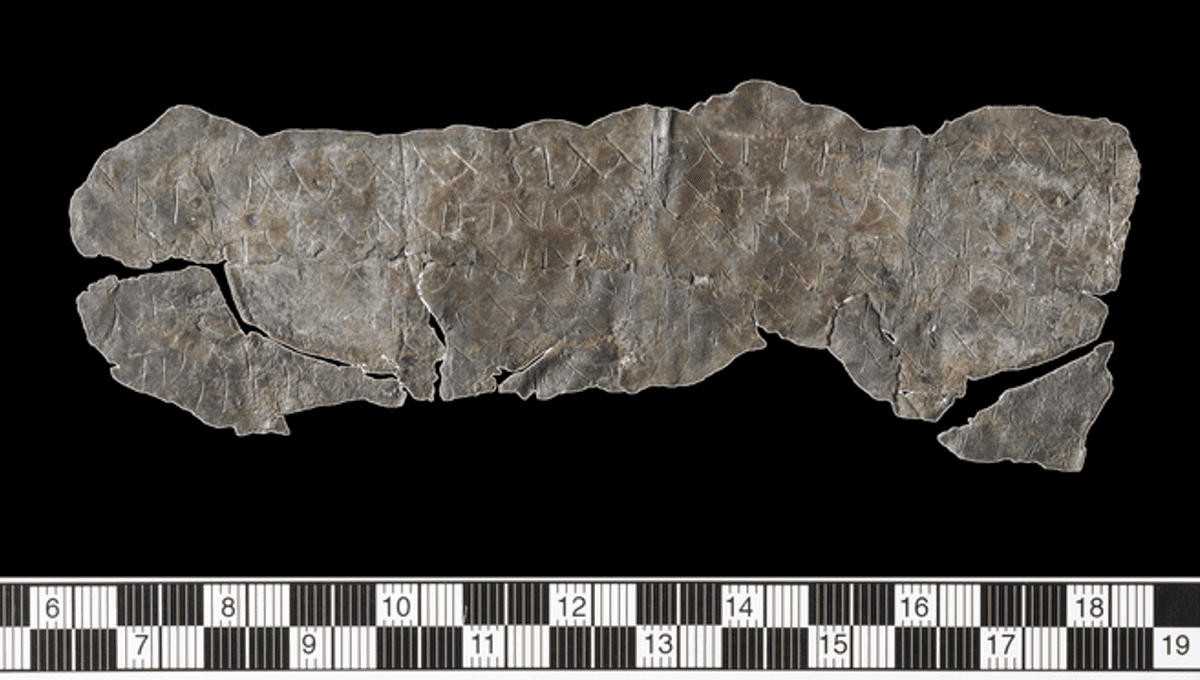
We’re often told that, since the advent of social media, modern society has become unprecedently toxic. What this view fails to account for, however, is just how petty and vengeful our ancestors were – and while they may not have had tweets available to take it out on the random folk they felt had wronged them, that definitely didn’t make them inclined to forgive and forget.
For proof of that, look no further than the literal thousands of curse tablets, dating from around 500 BCE to 500 CE, that have been discovered everywhere from Mediterranean Africa to the far north of Europe. Often inscribed on thin sheets of lead, these curses could be dealt out for any number of perceived slights – examples have been found targeting everyone from opponents in legal battles to good old-fashioned love rivals.
But according to researchers at Johannes Gutenberg University (JGU) Mainz, Germany, this bountiful collection of accursed relics isn’t just useful for finding out how to pee off our great-great-great-great-great-great-great-great-great-great-great-great-great-great-great-great-great-great-great-great-great-great-great-great-great-great-great-great grandparents – it may also give us a valuable glimpse into very early Christian life.
“There are aspects of curse tablet-related inscriptions and practices in Revelation,” explained Michael Hölscher, a researcher at the JGU Faculty of Catholic Theology and lead researcher on a new project investigating curse tablets and the role they play in the last book of the Christian New Testament, in a statement.
“It is possible that those who read or listened to the words of the Apocalypse of John could readily have seen whole passages, single phrases, or concepts in the light of curse spells,” he added.
As evidence, Hölscher points to examples within the Book of Revelation that echo the language and rituals found with curse tablets – citing, for instance, the description of an angel casting a stone into the sea with the words “Thus with violence shall that great city Babylon be thrown down, and shall be found no more at all.” For contemporary readers, he explained, the similarities with their own curse tablet routines would likely be obvious.
“The curse ritual as a whole was not simply restricted to the wording of the spell as such, but would have also involved the act of writing it down, the piercing of the tablets, or their burial in deliberately selected places,” Hölscher said. Indeed, the tablets were often placed in very specific places such as graves, or other sacred locations where the spirits of the underworld were thought to reside.
If that all sounds rather spooky and suspicious to you, well, the ancient Romans would likely agree: such practices were actually forbidden under Roman law, being viewed as a form of witchcraft or black magic. In return, however, the Christian minority spurned mainstream Roman culture – the Book of Revelation is pretty famously less of a gospel and more of a piece of anti-Roman political propaganda.
“The Book of Revelation contributes to the process of self-discovery, the seeking of a distinctive identity by a Christian minority in a world dominated by a pagan Roman majority that rendered routine homage not only to the emperor but also to the main Roman gods,” explained Hölscher.
As part of the German Research Foundation-funded “Disenchanted Rituals” project, the ultimate goal of the research is a better understanding how humankind has perceived and overcome challenges throughout history. In a world where their religion was so unequivocally the enemy of the culture surrounding them, the researchers hope that the overlap between curse tablets and the Book of Revelation will provide a unique view into how early Christians navigated the ancient Roman world.
“[They] may well have been an indirect expression of the need for segregation,” Hölscher said. “[They may represent] the attempt at self-preservation of an often threatened early Christian community.”
Source Link: Ancient Roman Curse Tablets Linked To Omens In Book Of Revelation